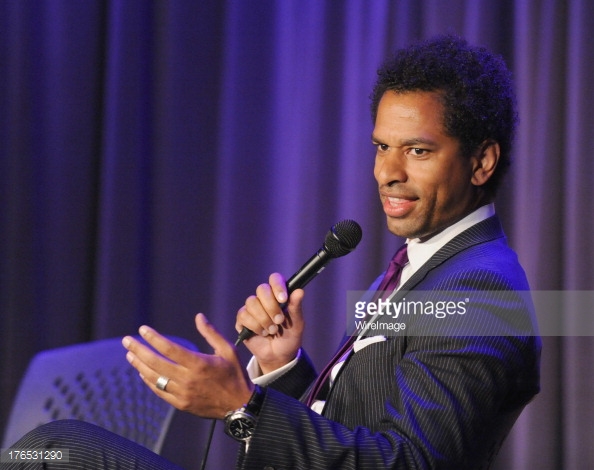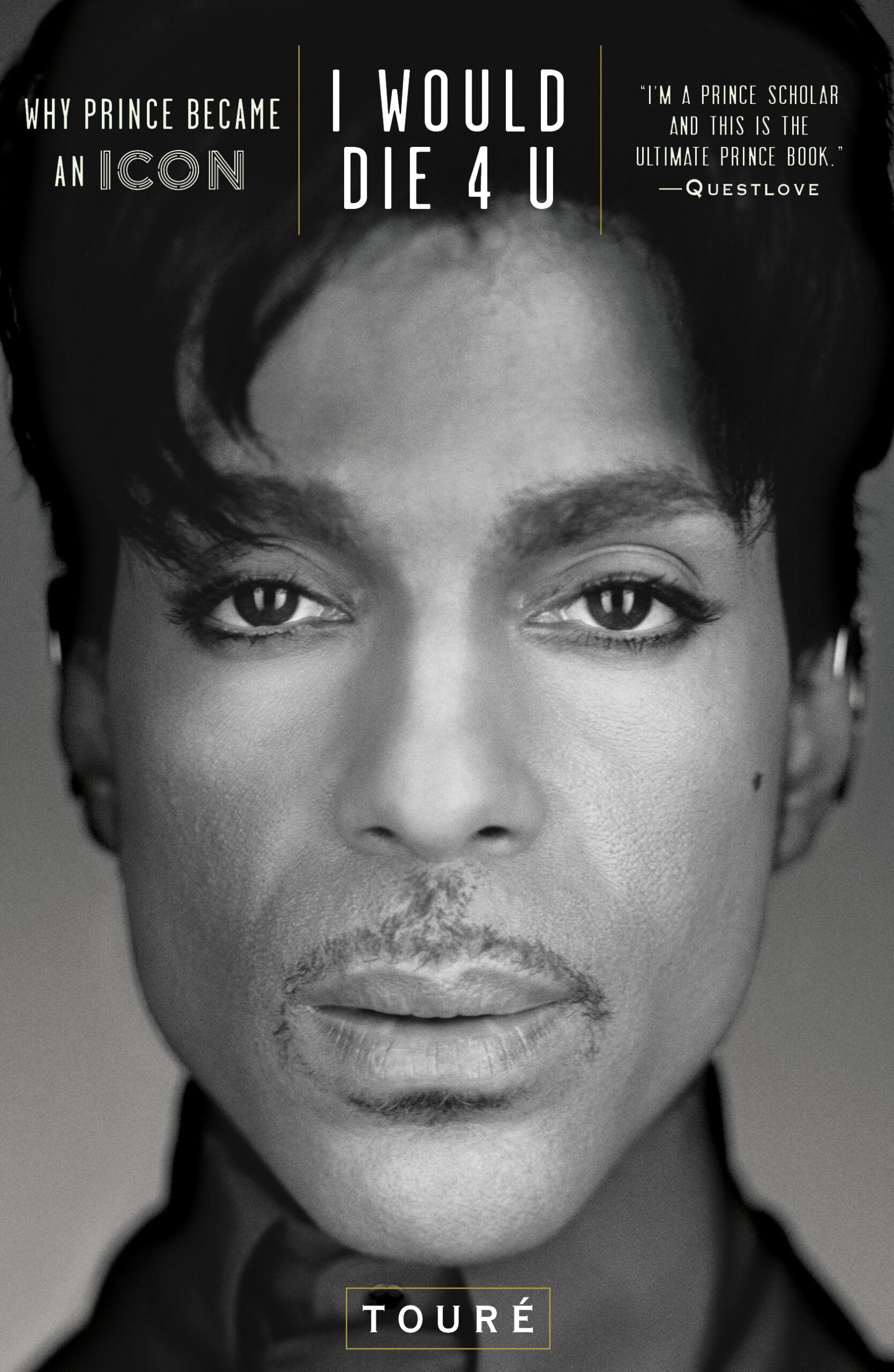
Dearly beloved, we are gathered here today to celebrate the 30th anniversary of this phenomenon we call Prince’s Purple Rain. On June 25th, 1984, six months after Michael Jackson’s Thriller premiered on MTV, the world was introduced to Prince, the icon. The album sold 1.5 million copies in its first week of release and has tallied 20 million since. Prince exists on his own plane of stardom and that is thanks in large part to the decade-defining Purple Rain.
In a favorable review, the New York Times said Prince’s early albums “described a mid-1970s Minneapolis rock scene” and that “Prince was the perfect leader for…black-white pop mutation.”
The album had an immediate impact on our culture; Purple Rain was Prince’s transformation into rockstar, and on his own terms. “Prince has stepped beyond the image he so obsessively constructed for himself on earlier records,” wrote the Times, “And the result is exhilarating.”
Evidence of Purple Rain‘s lasting impact also manifests itself in the form of samples. From 2Pac (courtesy of DJ Quik) to Lil’ B, Purple Rain samples are peppered throughout rap music.
One of the album’s tracks, “I Would Die 4 U,” wound up as the title of Touré’s 2013 book, I Would Die 4 U: Why Prince Became An Icon. Touré took the time out to talk Purple Rain with REVOLT. Read our Q&A with the author below:
Sama’an: There are some folks, so-called purists, with a “holier than thou” attitude, who scoff at the notion of this generation’s youth discovering Prince’s music through their own means. What do you think about those folks?
TOURÉ: I don’t really care how folks discover an artist, it doesn’t matter to me, I don’t think it should matter. What matters is if you encounter an artist you don’t know about, do you then tow through their history? Do you check them out and see what else they did? Do you fall in love with a song and keep pulling the thread or following the trail?
I discovered the Beatles historically, or Led Zeppelin, but I remember when “Rapper’s Delight” came on the radio for the first time. I was like, “Oh, crap. What is that?!” Every generation has that experience.
I was not into the White Stripes on their first two or three albums. I heard “Fell In Love With a Girl,” I loved it, but it didn’t move me to see what else they had. And then when “Seven Nation Army” came out, I was like, “Oh my god, I have to know more about these folks!” Then I dug into that album, then went into previous albums, and then stayed with them for their subsequent albums, and then going to the tours, and then stayed with Jack through his solo career. Then there was an artist (British singer, Holly Golightly) on the last song of Seven Nation Army and then I went into her career and checked her out.
If you get into Purple Rain, check that out, watch the movie, then go into the other albums before and after that. Go into Morris Day & The Time, Vanity, and Sheila E. because there’s a whole sort of genre of Prince.
It really doesn’t matter how you get invited to a given party, [what matters is] just that you go and once you’re there you really are sort of interested, involved, and engaged with the whole thing.
Sama’an: The opening line of “I Would Die 4 U” really defines Prince. The line is: “I’m not a woman, I’m not a man / I am something that you’ll never understand.” How important is that line?
TOURÉ: It means a lot because he likes to play with gender. He has this way of seemingly being both genders; taking the best of both genders into him, wrapping himself up in mystery, and loving mystique. Each of the three things he was serving there were sort of a thesis of who he is.
Sama’an: Prince seemed to enjoy and prefer not giving people a clear answer to questions about his sexuality. We see this a lot nowadays with Prince disciples like Janelle Monae.
TOURÉ: In the 80s, it was fairly dangerous to be seen as gay, much more so than now, and he was one of many folks who liked to play with that and was happy to have you wondering about his sexuality. There are a couple of songs in which he has people in the song asking him if he’s gay. So clearly he’s sort of planting the question. Sometimes he answers it and sometimes he doesn’t.
But part of what you see in him is the rejection of labels. He doesn’t want to be tied down to: gay or straight; or black or white; or even man or woman. He wants to be bigger than the boxes…he’s forward thinking in terms of rejecting labels and boxes and demanding a sort of all-encompassing identity.
Sama’an: What was the atmosphere surrounding the soundtrack and film release?
TOURÉ: Prince was an artist who had made some hits, was known for being raunchy and badass and lewd and sexual and shocking, but he was also very funk. He was somebody who lots of folks in the black community were intensely loving, but he had not really crossed over; and then Purple Rain was this revelation because it’s much more rock-sounding and the songs have more of an ability to crossover. So rock radio jumps all over it, MTV jumps all over it. MTV had been giving him some love, but now they move him up to 40-50 spins-per-week status– the top level. So now you’re getting rock radio and black radio playing him, and he could play venues that were not just getting a black audience but getting both audiences.
When he demanded of the folks around him, “Get me enough money that I can make a movie.” In terms of where he was an artist in the culture, he had no right to demand or expect that, he was not that big of an artist. And somehow they got the money and they made this movie that was perfect for him at that moment. It helped propel him to that higher level, that top level of fame. Generally, it works the other way around, you get to that level and then we make a movie about you reflecting that you are a top-level artist. This was the other way around where the movie propelled him upward to that top level. It functioned like this 90-minute music video that’s playing in theaters. It was really helpful in further pushing him upward.
Michael Jackson also had been coming as a solo artist. Off The Wall was huge, but Michael wanted to be bigger. Michael Jackson and Prince come out with Thriller and Purple Rain very, very close to each other and it created an interesting dichotomy in that a lot of folks were like, “Well, are you down with Michael or are you down with Prince?” There were the Prince folks, and the Michael folks. Not that either hated the other, but it was kinda like, they were so different. It allowed folks to set themselves up as, “I’m rollin with Prince instead of Michael” and “I’m rollin with Michael instead of Prince.” To have Prince competing with Michael, who was the anointed one since childhood, that just elevated Prince even more.
Sama’an: Do you think Prince even viewed it as competition?
TOURÉ: I think that Prince was competitive, but at the same time he would tell you that he sees no competition, it’s art, and he doesn’t view the world in that way.
https://www.youtube.com/watch?v=F8BMm6Jn6oU
Sama’an: In your book you talk about Prince being an icon because he brought the umbrella before the storm, but also because he has a tremendous work ethic to back that up. He has the drive to push himself further than most humans are capable of.
TOURÉ: The guy seemed to work all the time. He was only thinking about music, was only either recording or rehearsing or performing. People tell me from his teenage years he was not taking breaks. In rehearsal space he was the one who would never take a break. He was always either studying music history or writing music or learning an instrument or rehearsing dance. He would dream about songs and then wake up and write them.
This is a guy who would legendarily do a show, say, at Madison Square Garden, and then go to a small club and do another show at 2 AM. So you rocked out a big, giant stadium for two hours, and then went and did another show. He did an aftershow at SOBs with Questlove on the drums and D’Angelo on the guitar. The three of them rocking out. And you had to get the whisper to know, like, “He’ll be at SOBs at 3 AM,” and maybe you’d have to wait until 4 AM to actually show up. And he does this all-over: Paris, LA, New York, Philadelphia, wherever. The guy is just only working on music all the time.
Sama’an: Can you sum up in one sentence why Purple Rain is that album?
TOURÉ: I mean, it’s one of the great albums of all-time.
